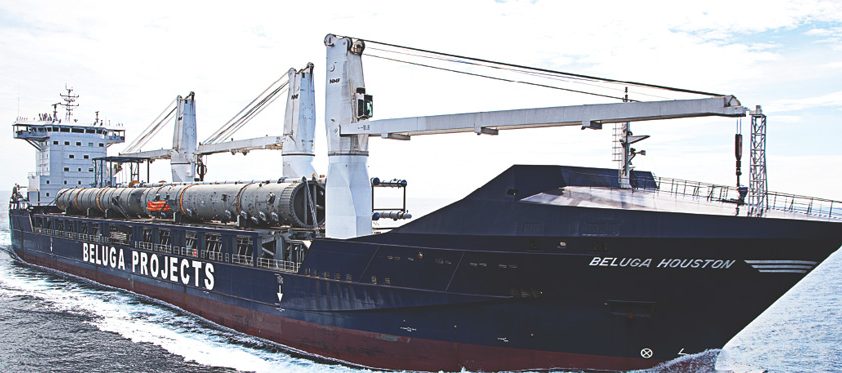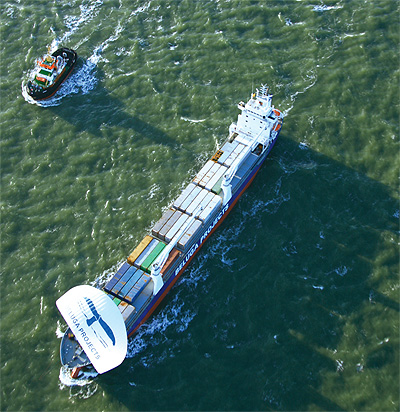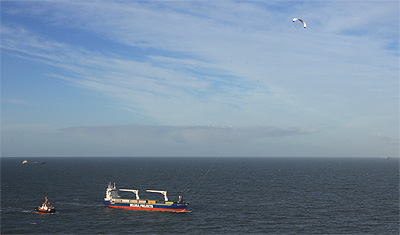
Beluga Shipping: Pioneers in Heavy-Lift Cargo & Innovative Maritime Solutions
Flying high
Beluga Shipping, established in 1995 as a cargo operator, is a transportation specialist for project and heavy-lift cargo, based in Bremen, Germany.
The company immediately acquired cargo on the market, matched it to ships and began chartering its own vessels. It began operating on the international market straight away and from the very beginning, Beluga’s founder, president and CEO Niels Stolberg focused on the niche project market and heavy-lift cargo. His aim for the business was to follow a path of controlled, strategic growth.
In line with this, the company purchased its first vessel in 1997. Today, the Beluga fleet comprises 59 multi-purpose heavy-lift project carriers with crane capacities of up to 700 tonnes, which are  able to carry out tailored transport solutions in the most remote places in the world. A team consisting of more than 400 highly experienced and qualified experts in ten locations around the world, together with 1300 mariners ensure that even the largest, heaviest goods reach their destination safely and on time. This dedication has paid off; according to the Institute of Shipping Economics and Logistics, Beluga Shipping is the world market leader in the project and heavy-lift cargo segment.
able to carry out tailored transport solutions in the most remote places in the world. A team consisting of more than 400 highly experienced and qualified experts in ten locations around the world, together with 1300 mariners ensure that even the largest, heaviest goods reach their destination safely and on time. This dedication has paid off; according to the Institute of Shipping Economics and Logistics, Beluga Shipping is the world market leader in the project and heavy-lift cargo segment.
In January 2008, Beluga became the first company in the world to use the wind-driven SkySails system on a cargo vessel new-building. The towing kite propulsion method provides relief to a ship’s engine, which in turn reduces fuel costs by ten to 15 per cent and protects the environment. Niels Stolberg outlines the vessel’s progress since it was introduced: “In January, the vessel embarked on her maiden voyage from her homeport in Bremen, to Guanta in Venezuela – a distance of over 4612 sea miles, carrying components for a chipboard plant. Since then the vessel has undertaken five more voyages, transporting cargo between the US and Europe, and most recently making a journey from the US to Russia, South America and Japan, before returning to the Americas. The vessel is currently on her way to Africa and is on course to arrive in Richards Bay, South Africa in December 2008. The SkySails will then return to Europe in January 2009, estimated to reach Rotterdam on January 10th.
“Generally speaking, the 160 square metre kite, currently installed on MV Beluga SkySails, can be used anywhere as long as the weather conditions are sufficient. The application of the kite system results in significant savings in bunker consumption and a reduction of the environmentally harmful emissions of CO2, NOx and SOx. At the moment, the data gained so far is being analysed and evaluated, and substantiated results and relatively exact figures will be available soon.”
The vessel has been well received by the industry, changing the way people are thinking about the future of shipping. Niels Stolberg comments: “The first successful voyages of the MV Beluga SkySails are proof in motion that this innovative hybrid propulsion effectuates something that was unimaginable for a long while – an environmentally friendly system. The vessel takes shipping into a greener future, as voyage costs and emissions can be reduced simultaneously. An innovative propulsion force opens the door to a future where international shipping is more considerate of the environment and less dependent on the constantly rising price of oil.”
In terms of the current economic situation, Niels Stolberg believes that SkySails will be an advantage to the company and its customers: “Generally, the SkySails system will bring benefits, and not only in the context of the current economic situation. The system represents a suitable model for cutting costs and emissions with particular regard to standard heavy-lift shipping through the use of wind energy. The vessels require no mast on deck, and there is no restriction of stowage space, no hindrances to loading and discharging, and no risk to the crew, the cargo or the ship. The  experiences gained from the initial commercial voyages have provided us with good reason to believe in the overall usability, and even more efficient performance of the system, once the calibrating and adjusting period is completed.
experiences gained from the initial commercial voyages have provided us with good reason to believe in the overall usability, and even more efficient performance of the system, once the calibrating and adjusting period is completed.
“Currently our new P1 and P2 series vessels are under construction. These versatile ships will represent the next generation of flexible carriers operating more independently from local port infrastructure. We believe the Beluga P-series is an ideal strategic answer to the current market situation marked by growth and expansion. Two of these super heavy-lift vessels will also be supplied with the SkySails system. On the Beluga P-series vessels, the kites will provide for sail surfaces of 600 square metres each. Fuel savings in the region of ten tons daily can then be anticipated according to present-day estimates. These kites will be up and flying as from 2009.”
Beluga Shipping’s activities have not been limited to the implementation of the SkySails system. In line with the company’s future-oriented approach, it has just set up an in-house department of research and innovation. The company has also lead-managed Maritime Campus in the city of Elsfleth, including a maritime research centre. Niels Stolberg comments: “Beluga Shipping and the new research centre will closely interact. While the shipping company is planning intense processing of topics with the target of making hydrogen and fuel cells applicable in shipping, the maritime research centre will take part in a national initiative with the same goal. Also on schedule is the usage of solar technology. The gained sun power would probably never be enough to propel a ship, yet it could well be converted as base current supply for the light on board.
“The research and innovation department and the maritime research centre will not only concentrate on effecting lower bunker consumption and fewer environmentally harmful emissions; they also aim at making work easier for the people on board. Hence, department and centre will develop more efficient processes and workflows for use on board the merchant fleet. The vessels are going to become free of paper, which will significantly trim down the current three to four hours of administrative work the chief mates and officers have to undertake. A Smart Electronic Maritime Information and Communication System (SEMICS) will be implemented to simplify bureaucratic processes and restore the necessary time to the supervisors to oversee safety on board.”
Niels Stolberg is confident that these research developments and the currently developing P-Series will see the company into the future: “Despite the world economic downturn, which generally is a threat that requires careful countermeasures, it is believed that the project and heavy-lift market will remain unaffected. Long-term projects and plant constructions worldwide should keep the market stable until 2012, perhaps even until 2015. Our policy is to be more innovative than others, to follow our visions and to move off the beaten track whenever this seems a worthwhile endeavour.”
Beluga Shipping
Services Heavy-lift cargo shipping